
Free Air Source Heat
Pump System Design
Engineered for Efficiency Backed
by our Performance Guarantee

Free Air Source Heat
Pump System Design
Engineered for Efficiency Backed
by our Performance Guarantee
Not Just Another Heat Pump Quote
The optimal system for your home, what it costs, and how it performs, before you ever spend a penny
Up To £500 From Others
Free For Qualifying Homes
Not Just Another Heat Pump Quote
Free Air Source Heat Pump System Design
The optimal system for your home, what it costs, and
how it performs, before you ever spend a penny
Up To £500 From Others
Free For Qualifying Homes
The team showed their excellent knowledge of air source heat pump installations. They always had time for questions. Being Heat Geek certified made a difference to my confidence in their ability to do the job.
- G. Davies
Why Most Heat Pump Installations Disappoint
Rushed quotes. Oversized systems. That’s why we take the time to design your
Air Source Heat Pump System first and guarantee performance
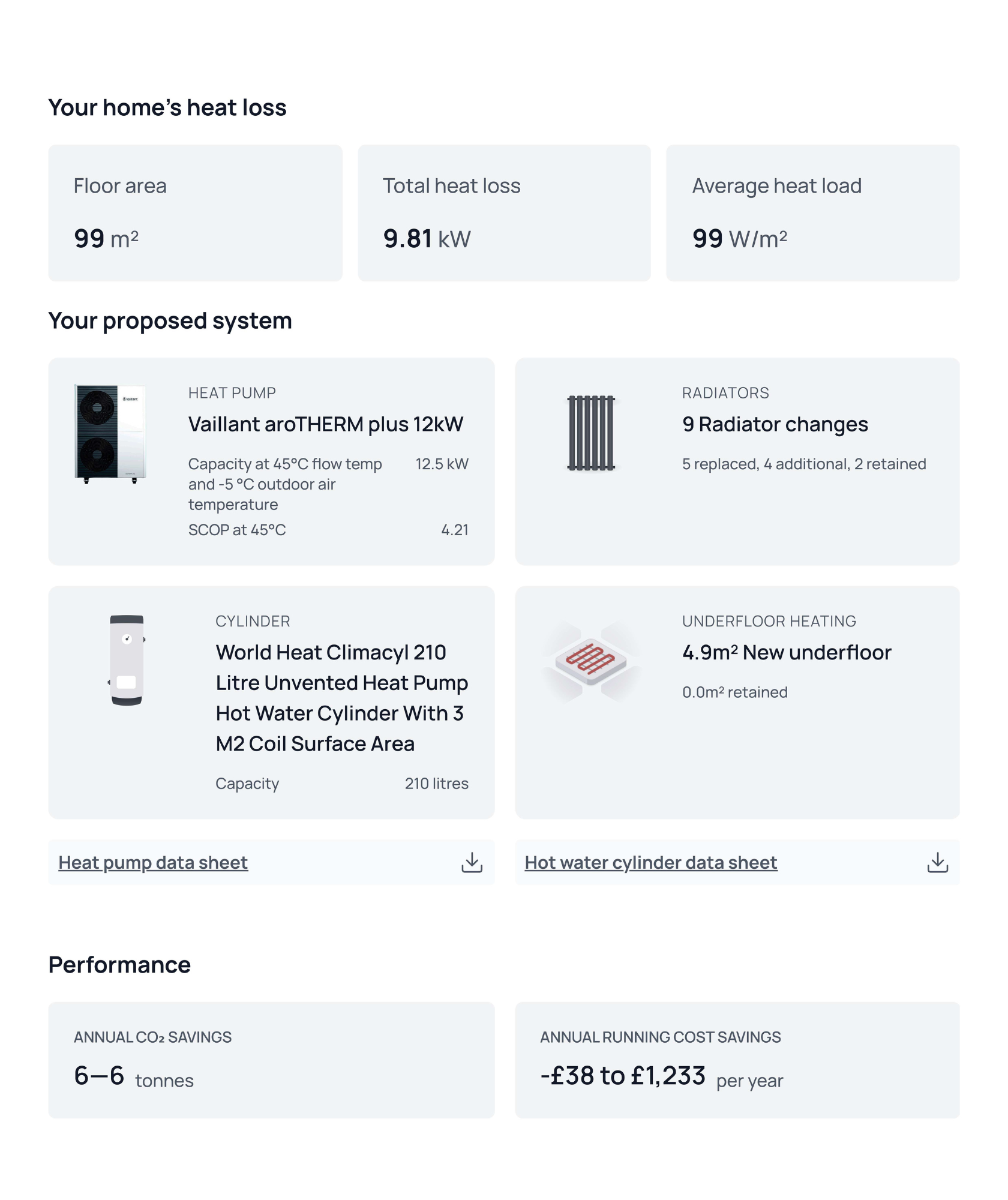
*This is one page from a real System Design. Book yours today to get clarity and confidence.
Most Heat Pumps Fail Because They Were Never Properly Designed
Ours Are.
This is How We Protect You
Calculate how much heat your home actually needs. Room by room. No cold spots.
Check your current radiators and pipework before replacing anything. Only upgrade what’s necessary
Model your running costs in advance. No surprises. You’ll know what you’re likely to spend each year and how that compares to your current system.
We check planning, sound levels, and grant eligibility. So you stay compliant, avoid red tape, and get the support you’re entitled to.
Why Most Heat Pump Installations Disappoint
Rushed quotes. Oversized systems. That’s why we take the time to design your Air Source Heat Pump System first and guarantee performance
Most Heat Pumps Fail Because They Were Never Properly Designed
Ours Are.
This is How We Protect You.
Calculate how much heat your home needs. Room by room. No cold spots.
Check your current radiators and pipework before replacing anything. Only upgrade what’s necessary
Model your running costs in advance. No surprises. You’ll know what you’re likely to spend each year and how that compares to your current system.
Check planning, sound levels, and grant eligibility. So you stay compliant, avoid red tape, and get the support you’re entitled to.

*This is one page from a real System Design. Book yours today to get clarity and confidence.
Our Performance Guarantee
An industry leading guarantee that's linked to your system's running cost.
"If we install your system it will perform at least as efficient as quoted on your proposal or we will fix it at our expense."
This not only guarantees the performance of your system and saves you money but also protects you for years to come!
Our Performance Guarantee
An industry leading performance guarantee that's directly linked to your system's running cost.
"If we install your system it will perform at least as efficient as quoted on your proposal or we will fix it at our expense."
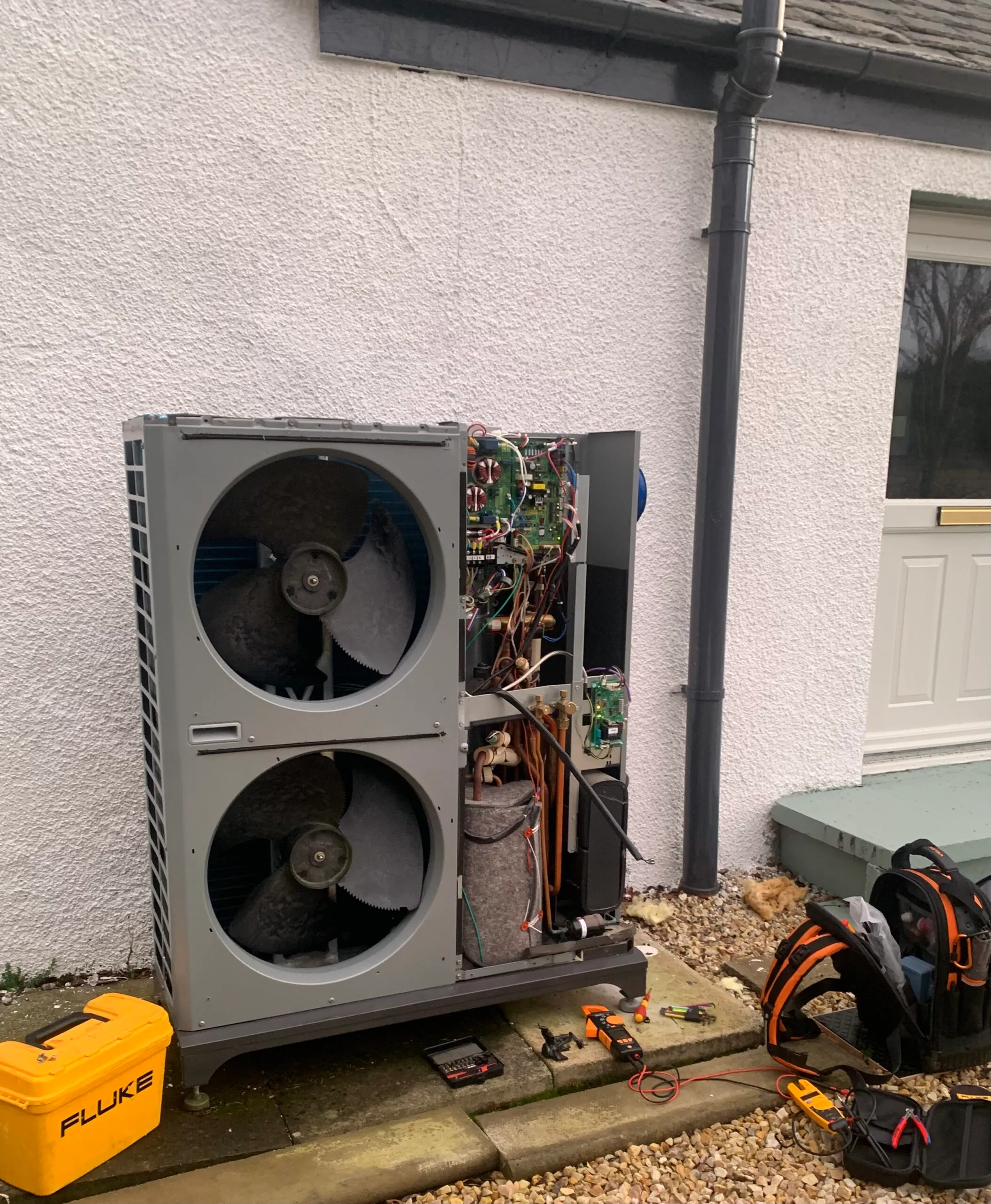
This not only guarantees performance and saves you money
but also protects you for years to come!
The 6 Steps We Follow To Design Your System
Our process follows MCS standards and Heat Geek best practices
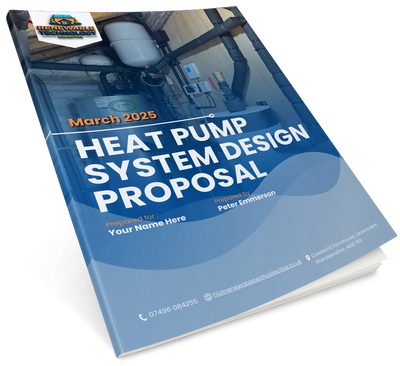
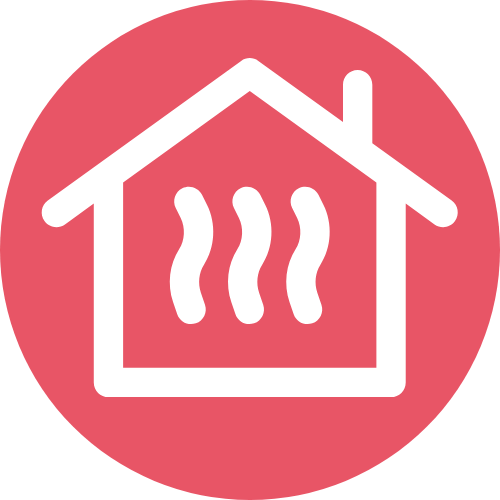
Heat Loss Survey
A full heat loss assessment to measure how much heat energy your current radiators output and if any are undersized

Electrical Survey
A visual survey of the electrical supply and information for the electricity supplier to enable any free capacity upgrade

Water Survey
Survey of the water supply to assess suitability for a mains pressure hot water cylinder or hot water thermal battery

Noise Survey
MCS 020 noise assessment to ensure a heat pump installation would not be any louder than your gas boiler

Discuss The Best Solution
Discuss your budget and lifestyle requirements to provide tailored money saving advice

Questions and Answers
Answer all of your questions about heat pumps, government grants and the installation process so you're well informed
The 6 Steps We Follow To Design Your System
Our process follows MCS standards and Heat Geek best practices


Heat Loss Survey
A full heat loss assessment to measure how much heat energy your current radiators output and if any are undersized

Noise Survey
MCS 020 noise assessment to ensure your air source heat pump installation would not be any louder than your gas boiler

Electrical Survey
A visual survey of the electrical supply and information for the electricity supplier to enable any free capacity upgrade

The Best Solution
Discuss your budget and lifestyle requirements to provide tailored money saving advice about your proposed heat pump system

Water Survey
Survey of the water supply to assess suitability for a mains pressure hot water cylinder or hot water thermal battery

Questions and Answers
Answer all of your questions about heat pumps, government grants and the installation process so you're well informed
Your Trusted Partner
We're your trusted local experts based in the North East of Scotland

Our Accreditations
We carry industry leading certifications and accreditations so we can design the highest performing Air Source Heat Pump Systems for homes like yours
Your Trusted Heat Pump Partner
We're your trusted local experts based in the North East of Scotland
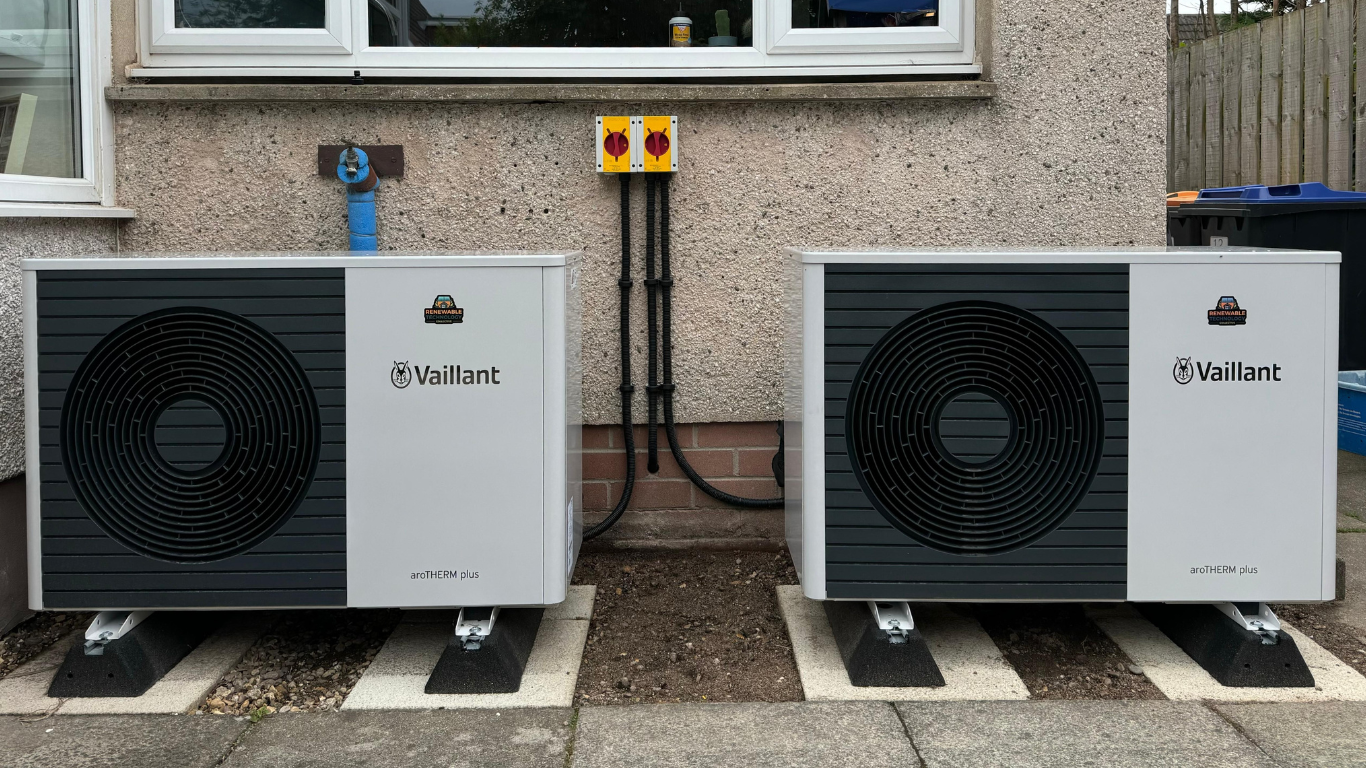
Our Accreditations
We carry industry leading certifications and accreditations so we can design the highest performing Air Source Heat Pump Systems for homes like yours
You Decide What's Next
Whether your ready to book your Free Air Source Heat Pump
System Design or still have questions we're here to help!

Book Your System Design
Bookings are limited by our availability due to the
high value and time commitment required

View Sample System Design
Not ready to book? Simply click here to view a
real-world example system design proposal
You Decide What's Next
Whether your ready to book your Free Air Source Heat Pump System Design or not we're here to help!

Book Your System Design
Bookings are limited by our availability due to the high value and time commitment required.

View Sample System Design
Not ready to book? Simply click here to view a real-world example system design proposal
Frequently Asked Questions
How long will my system design take?
Approximately 2 hours at your home carrying out the 6 step process and up to 5 working days for your tailored heat pump system design to be issued to you.
Is this really free?
This is completely free with no obligation to use us. We want you to go away better informed even if you don't use us. Please note this a limited availability opportunity and spaces book up fast due to the high value and time commitment required.
What happens after?
After we have issued your tailored heat pump system design we will issue you with an estimate. This can be used to book your installation with us or used as a comparison against other quotes you have received.
Frequently Asked Questions
How long will my system design take?
Approximately 2 hours at your home carrying out the 6 step process and up to 5 working days for your tailored heat pump system design to be issued to you.
Is this really free?
This is completely free with no obligation to use us. We want you to go away better informed even if you don't use us. Please note this a limited availability opportunity and spaces book up fast due to the high value and time commitment required.
What happens after?
After we have issued your tailored heat pump system design we will issue you with an estimate. This can be used to book your installation with us or used as a comparison against other quotes you have received.














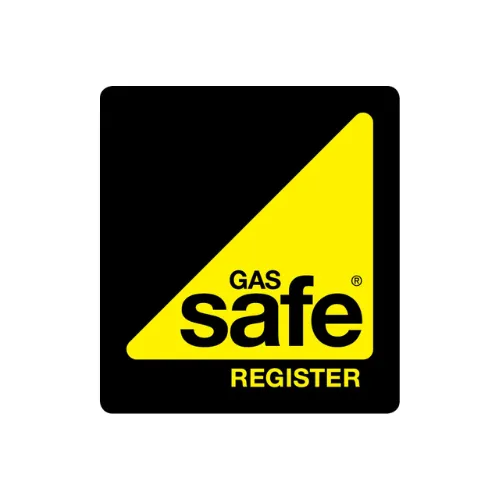

Instagram
LinkedIn